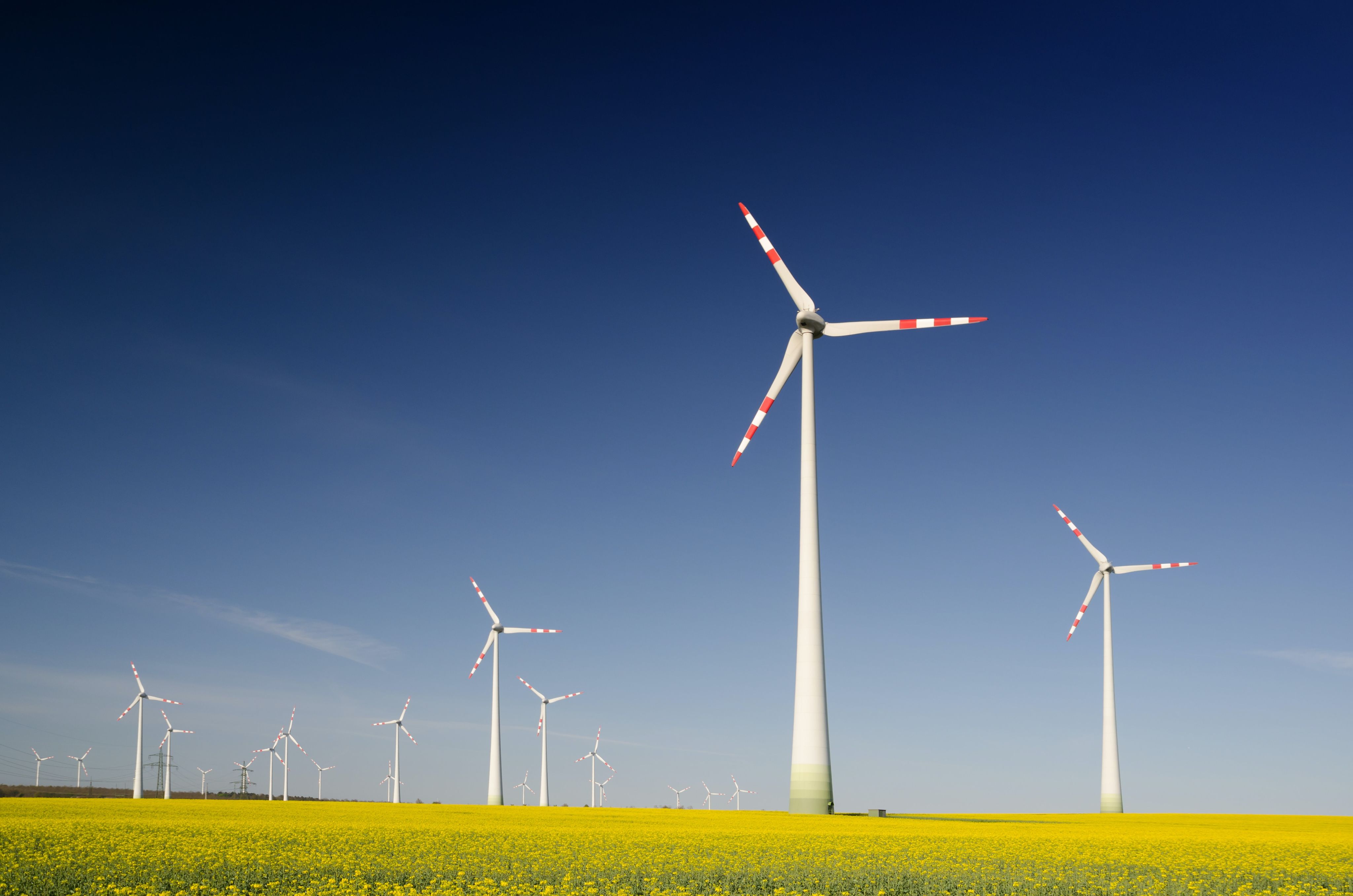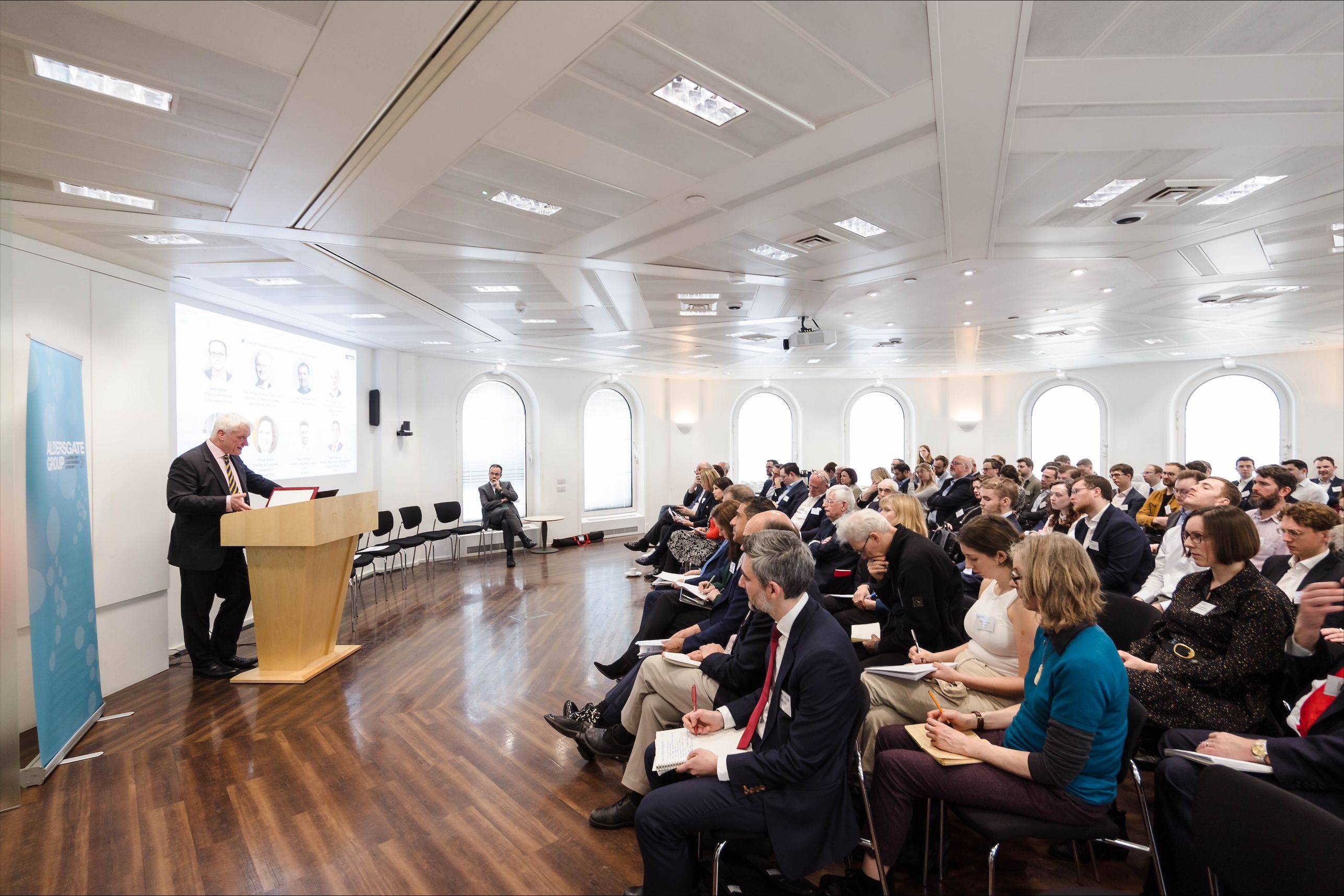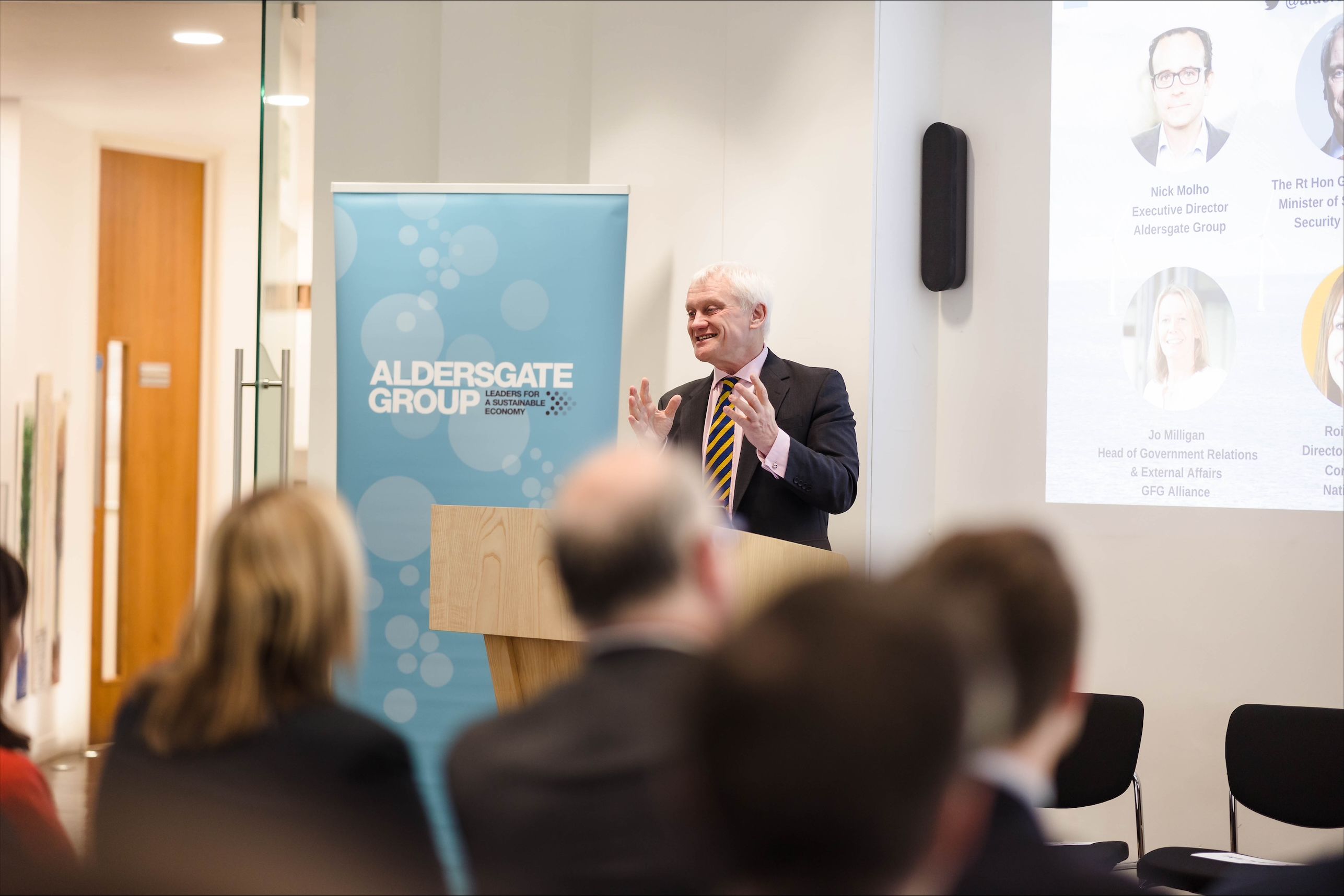Decarbonising power
How can policymakers decarbonise the UK electricity market and move away from costly fossil fuels?

“I think the government has an incredibly complicated task in electricity market reform. It's a complex system, and the solutions aren't easy. How do we pass clean and relatively cheap renewable power through to consumers?”
Electricity market reform is just one of the issues tackled by Professor Michael Grubb, Professor of Energy and Climate Change at The Bartlett School of Environment, Energy and Resources, in a new report, ‘A zero-carbon power grid and the electrification of heavy industry: how to deliver on a twin challenge’.
Launch event for the Aldersgate Group report: ‘A zero-carbon power grid and the electrification of heavy industry: how to deliver on a twin challenge'. Photo by Gabriel Popa at Raccoon Photography.
Launch event for the Aldersgate Group report: ‘A zero-carbon power grid and the electrification of heavy industry: how to deliver on a twin challenge'. Photo by Gabriel Popa at Raccoon Photography.
Launch event for the Aldersgate Group report: ‘A zero-carbon power grid and the electrification of heavy industry: how to deliver on a twin challenge'. Photo by Gabriel Popa at Raccoon Photography.
Launch event for the Aldersgate Group report: ‘A zero-carbon power grid and the electrification of heavy industry: how to deliver on a twin challenge'. Photo by Gabriel Popa at Raccoon Photography.
Published by The Bartlett with support from the Aldersgate Group and the Institute for New Economic Thinking, the report outlines a series of policy measures needed to decarbonise UK power systems by 2035, and transition heavy industries such as steel, cement and chemicals away from fossil fuels.
As a Convening Lead Author on the IPCC Sixth Assessment Report in 2022, Prof Grubb’s contribution to this report will likely be a major influence on current and future government energy policy direction. Both the Minister of State for Energy and the Shadow Minister were in attendance at the report’s launch event.
“At its core, we still have an electricity system basically designed for the last century, and it is not going to work in the years and decades to come. So ultimately, some pretty fundamental reforms are required.”

Paying the price for market misalignment
The effects of misalignment between current energy market arrangements and the key technologies producing the power sold to markets are only too evident to households and businesses across the UK. As Prof Grubb explains, “the impact of the energy crisis on consumers was unfortunately made worse by the way the electricity market operates. Even though the energy crisis may recede, it's revealed problems in how we organise the system.”
The current electricity market structure relies on marginal pricing – a market mechanism whereby the price of all electricity at any given moment is set by the most expensive power plant brought online to meet demand. As the marginal price of gas is far higher than the near-zero marginal cost of renewables, gas is used to set the overall cost of electricity to consumers most of the time.
This approach was adopted at a time when renewable energy production could only meet a small portion of the country’s energy demands, and fossil fuel played a much greater part in the UK energy mix.
As renewable energy production increases, however, decoupling the cost of this much cheaper electricity from the much higher costs associated with gas has become the number one challenge facing the energy market.
“Markets are designed by governments. The design has to evolve as the technologies evolve.”

The Bartlett report bases its market reform recommendations around the creation of a ‘Green Power Pool’ - effectively an aggregator-based system where many, if not all, renewable energy generators would add their supply to a combined pool. The aggregator, or ‘pool operator’, would then provide power to consumers either directly or through suppliers licensed for this purpose.
The pool operator would be able to offer electricity at an average price more consistent with the true cost of renewable energy generation, while still accessing wholesale gas from the open market to meet demand when necessary.
The low carbon technology race
Changes such as these are currently being implemented in domestic and international markets across the globe, and economic imperatives are driving these market reforms.
“Climate change is now taken seriously in all the major economies,” says Prof Grubb. “There are solutions in low carbon technologies, absolutely. And the UK would be foolish not to capitalise on the position that it's managed to obtain in at least some of those technologies.
“The question is: how seriously will the government take planning, connection, and all the other obstacles that stand in the way? How will they deal with them? That’s a much more complicated question.”
Steel plant. Photo by Adrienguh
Steel plant. Photo by Adrienguh
Battling on all fronts
Energy market reform is just one of the comprehensive raft of measures outlined by the report, which also contains research and recommendations for green public procurement rules, mandatory product standards, and improvements to the government’s existing mechanisms, such as Contracts for Difference (CfD) which were created in response to the problems facing the electricity market.
“Climate change is now taken seriously in all the major economies. The question is: how seriously will the government take planning, connection, and all the other obstacles that stand in the way? That's a much more complicated question.”

While CfDs have created greater incentives for investors to build new renewable energy infrastructure, Prof Grubb argues that going forwards the systems need to be weighted geographically, to more closely reflect the practical considerations of renewable energy generation.
“We fundamentally don’t have a sufficiently big and robust transmission system. So, investors need some incentives that would help to diversify where we locate renewables. Then as a weather front crosses the country, you’ll get more consistent output, rather than having it all in one area in the North Sea.
“To some extent, it’s about the mix of renewables as well – the balance of wind and solar are actually quite complementary. That kind of signal (to investors) will become more important, the more renewable energy we have.”
While under no illusions about the scale of the challenges facing the UK’s energy sector, Prof Michael Grubb and The Bartlett remain committed to this vital research.
“We still have an electricity system basically designed for the last century, and it is not going to work in the years and decades to come. So ultimately, some pretty fundamental reforms are required. We think we've injected some useful ideas on how to go about it.”
About the author
Professor Michael Grubb
Professor of Energy and Climate Change, The Bartlett School of Environment, Energy and Resources, UCL
Michael Grubb is Professor of Energy and Climate Change at University College London, following positions at Imperial College London and then Cambridge University. His career has combined academic with half-time implementation roles. Following eight years as Chief Economist at the UK Carbon Trust, the UK’s lead organisation for business implementation, he was Senior Advisor to the UK Office of Gas and Electricity Markets (the energy regulator, Ofgem), and then Chaired the UK government’s Panel of Technical Experts on Electricity Market Reform.
Story produced by All Things Words
© UCL The Bartlett 2023





